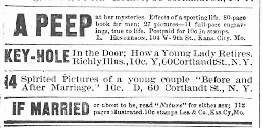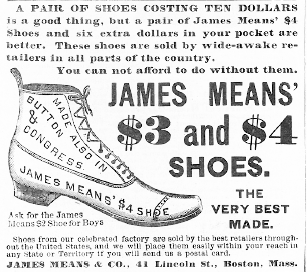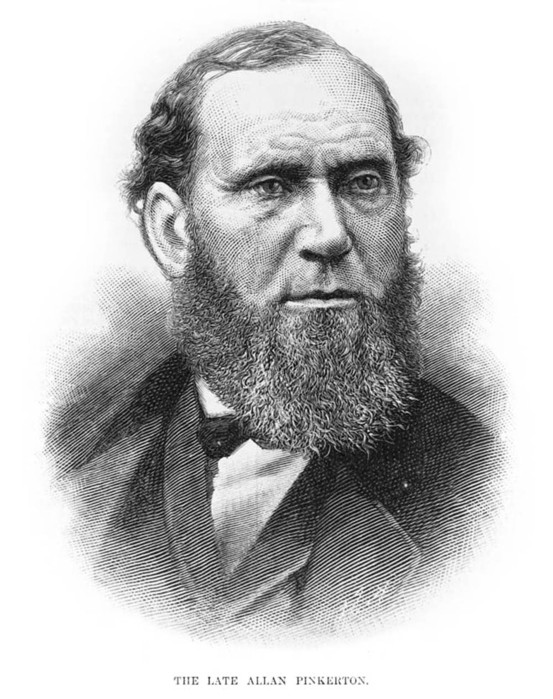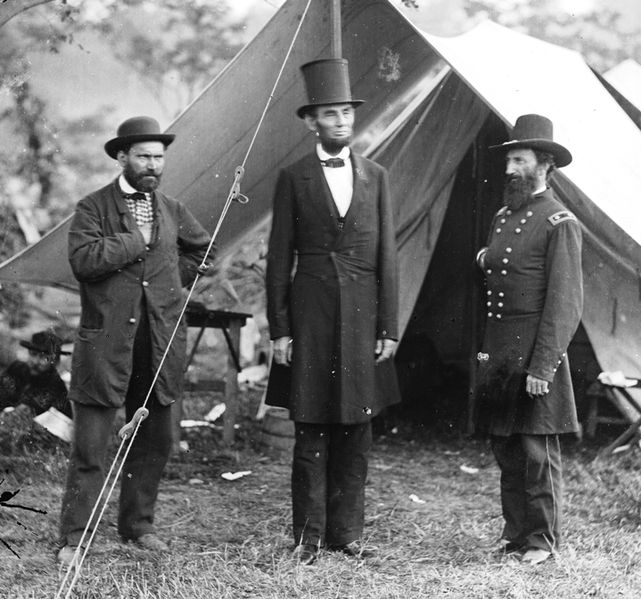

alias: DILLON, MARY ANN DOWD, SANDERS
PICKPOCKET, SHOPLIFTER
(Click image to enlarge)
LUBFOOT" HALL - CON MANSoapy Smith's mentor? Recently, I saw two Youtube videos on "Soapy" Smith. Both chose to use the old error filled biographies as sources. Sometimes I leave a comment, letting the author and visitors know some of the errors in the videos and letting them know that there are published true histories of Soapy if they so desire. In
More...
Soapy Smith's Soap Box - 2/23/2025
Included in yesterday’s trip to Fall River was a stop at Miss Lizzie’s Coffee shop and a visit to the cellar to see the scene of the tragic demise of the second Mrs. Lawdwick Borden and two of the three little children in 1848. I have been writing about this sad tale since 2010 and had made a previous trip to the cellar some years ago but was unable to get to the spot where the incident occured to get a clear photograph. The tale of Eliza Borden is a very sad, but not uncommon story of post partum depression with a heartrending end. You feel this as you stand in the dark space behind the chimney where Eliza ended her life with a straight razor after dropping 6 month old Holder and his 3 year old sister Eliza Ann into the cellar cistern. Over the years I have found other similar cases, often involving wells and cisterns, and drownings of children followed by suicides of the mothers. These photos show the chimney, cistern pipe, back wall, dirt and brick floor, original floorboards forming the cellar ceiling and what appears to be an original door. To be in the place where this happened is a sobering experience. My thanks to Joe Pereira for allowing us to see and record the place where this sad occurrence unfolded in 1848. R.I.P. Holder, Eliza and Eliza Ann Borden. Visit our Articles section above for more on this story. The coffee shop has won its suit to retain its name and has plans to expand into the shop next door and extend its menu in the near future.
More...
Lizzie Borden: Warps and Wefts - 2/12/2024
Welcome to the latest Link Dump!Our host for this Friday's festivities is the one-and-only BABY.Watch out for the Gown Man!Two violent and puzzling deaths.You know, "radioactive anomaly" are two words you'd rather not see together.Ancient diet tips.A widower's mourning gets...complicated.The saloon cat and Theodore Roosevelt.The CIA's psychic army.There's a lot of ancient writing out there
More...
Strange Company - 2/21/2025
An article I recently wrote for the British online magazine, New Politic, is now available online. The article, “The Criminal Origins of the United States of America,†is about British convict transportation to America, which took place between the years 1718 and 1775, and is the subject of my book, Bound with an Iron Chain: […]
More...
Early American Crime - 12/17/2021
Illustrated Police News, Nov. 10, 1883.Zora Burns was a beautiful and captivating young woman with
“…abundant hair of yellow-golden tint clustered about features as perfectly
regular as those which Phidias chiseled from the marble of Greece. Her form was
grace and symmetry personified, and despite her lack of educational advantages,
her natural tact and quickness of intellect atoned in great
More...
Murder By Gaslight - 2/22/2025
When 721 St. Nicholas Avenue (below, corner house) made its debut in 1891, the formerly sleepy village of Harlem was rapidly becoming part of the urban streetscape. What had been a rural area dotted with estate houses in the 18th century (like Alexander Hamilton’s country retreat, the Grange) became a popular place for wealthy New […]
More...
Ephemeral New York - 2/17/2025
Youth With Executioner by Nuremberg native Albrecht Dürer … although it’s dated to 1493, which was during a period of several years when Dürer worked abroad. November 13 [1617]. Burnt alive here a miller of Manberna, who however was lately … Continue reading
More...











 Allen Pinkerton, Pres. Lincoln, Maj. Gen. McClernand
Allen Pinkerton, Pres. Lincoln, Maj. Gen. McClernand



